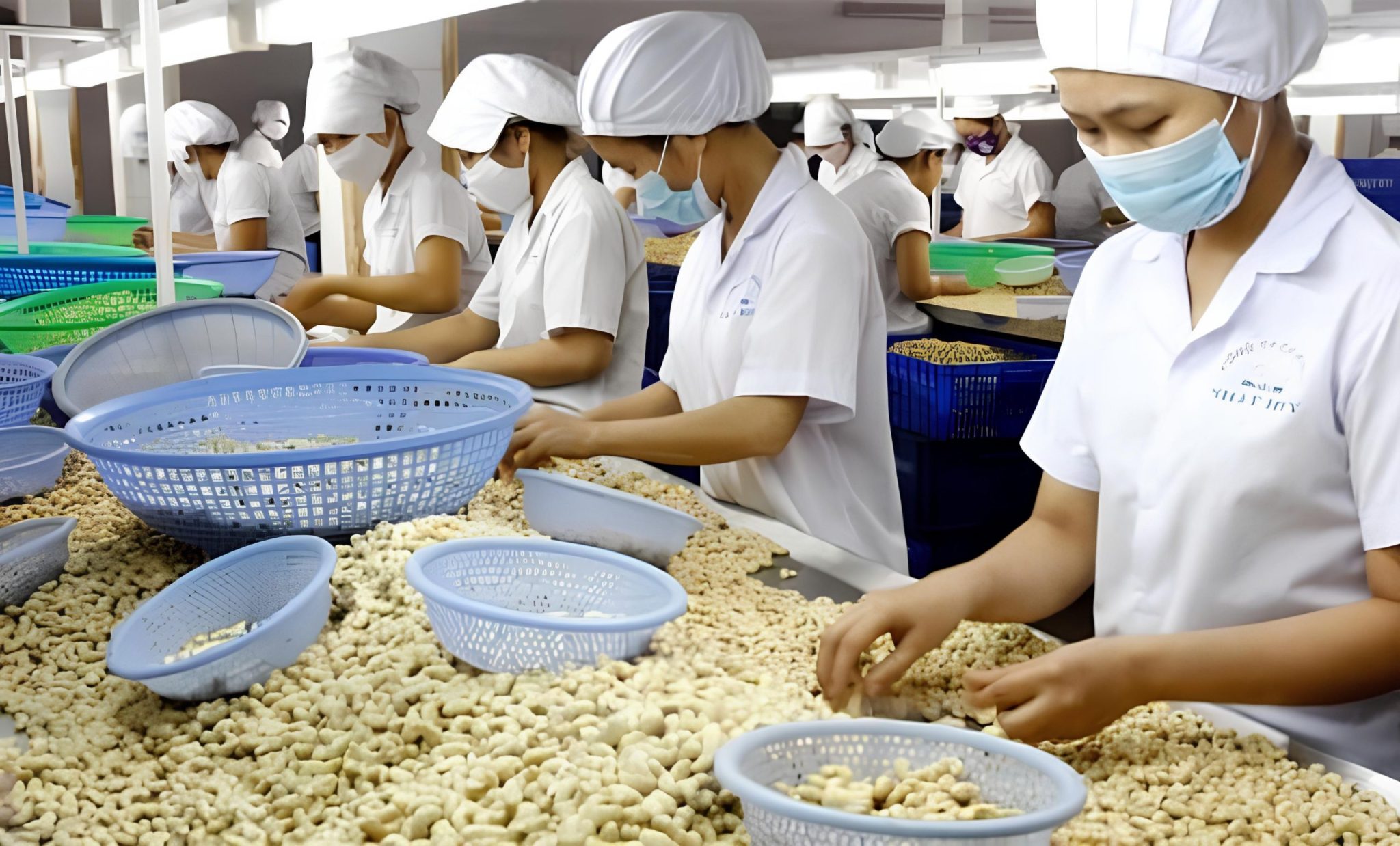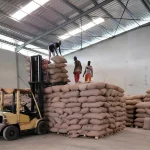In the heart of West Africa lies a lucrative industry that has captured global attention for its economic significance and social impact: the cashew nut industry. Renowned for its quality and abundance, West African cashews have become a cornerstone of the global market, driving economic growth, empowering local communities, and transforming the agricultural landscape of the region. With West Africa accounting for a substantial portion of the global cashew nut production, understanding the intricate dynamics within this industry unveils a story of resilience, challenges, and international partnerships. Particularly, the symbiotic relationship between West Africa and Vietnam in the trade of raw cashew nuts underscores the interconnectedness of the global economy.
A Flourishing Industry
West Africa stands as a powerhouse in the global cashew nut market, with countries like Ivory Coast, Nigeria, Ghana, and Benin leading the production charts. According to recent statistics from the IUnited Nations Conference on Trade and Development (UNCTAD), the region collectively accounts for around 43% of the world’s cashew nut production.
The Nigerian Export Promotion Council (NEPC) reports a steady increase in cashew exports, with revenues reaching over $350 million in 2022, a testament to the industry’s burgeoning potential.
Empowering Communities
Beyond its economic significance, the cashew nut industry plays a pivotal role in empowering local communities across West Africa. Smallholder farmers form the backbone of cashew production, with millions of families relying on cashew cultivation for their livelihoods.
In countries like Ghana and Benin, cashew farming provides a lifeline for rural communities, offering stable incomes and employment opportunities. According to data from the Food and Agriculture Organization (FAO), cashew cultivation supports over 2 million smallholder farmers in West Africa, contributing to poverty alleviation and rural development.
Moreover, the cashew boom has spurred investment in social infrastructure, including schools, healthcare facilities, and road networks, improving living standards in cashew-producing regions. Organizations like the African Cashew Alliance (ACA) work tirelessly to promote sustainable practices and empower farmers through training programs and capacity building initiatives.
Export Quantity: A Key Metric of Success
Export quantity serves as a crucial metric for measuring the success and competitiveness of West African countries in the global cashew market. It reflects the volume of cashew nuts shipped to international markets, highlighting the region’s capacity to meet growing demand and fulfill export commitments.
Cashew Industry in Ivory Coast
A little over 600 million US dollars were exported by Ivory Coast in cashew nut value in 2022. It is still a record high value even though it is less than the prior year. The export value increased most sharply between 2020 and 2021, going from roughly 740 million US dollars to roughly $1 billion US dollars.
Here are the total export values of cashew nuts from Ivory Coast between 2013 and 2022.
In Ivory Coast, one kilogram of raw cashew nuts can cost anywhere from 600 CFA Francs ($0.96) to 900 CFA Francs ($1.45 ). The average export price per kg serves as the basis for this. The current wholesale price is at 1,200 CFA Francs, or $1.93 USD.
Cashew Industry in Benin
In 2022, Benin’s cashew nut exports were valued at slightly more than 32 million US dollars. Compared to last year, there has been a drop. The export value increased most sharply between 2016 and 2017, going from approximately 38 million US dollars to approximately 83 million US dollars.
The total cashew nut export figures from Benin from 2013 to 2022 are listed here.
In Benin, the price range for a kilogram of raw cashew nuts is 607 XOF ($0.97) to 970 XOF ($1.55). The average export price per kg serves as the basis for this. The maximum wholesale price ($2) is 1251 XOF.
Cashew Industry in Nigeria
In 2021, Nigerian cashew nut exports were worth little more than 180 million US dollars. That is a 62% rise over the prior year. The export value increased most sharply between 2016 and 2017, going from approximately 30 million US dollars to approximately 81 million US dollars.
In Nigeria, a kilogram of raw cashew nuts can cost anywhere from 400 Naira (0.5 USD) to 800 Naira ($1). The average export price per kg serves as the basis for this. The maximum wholesale price is 1,500 Nigerian Naira, or $2.
These are the total amounts that Nigeria exported cashew nuts between 2012 and 2021.
Cashew Industry in Guinea-Bissau
In 2022, Guinea-Bissau’s cashew nut exports were worth little more than $200 million USD. That is a 42% rise over the prior year. The export value increased most sharply between 2021 and 2022, going from roughly 150 million US dollars to roughly 210 million US dollars.
In Guinea-Bissau, a kilogram of raw cashew nuts can cost anywhere from 900 CFA Francs ($1.50) to 1,200 CFA Francs ($2). The average export price per kg serves as the basis for this. The current wholesale price is 600 CFA Francs ($1).
The total cashew nut export figures from Guinea-Bissau between 2013 and 2022 are listed here.
Cashew Industry in Ghana
Ghana’s cashew nut exports were worth little more than $300 million in US dollars in 2022. It is still a record high value even though it is less than the prior year. The export value increased most sharply between 2016 and 2017, rising from roughly 230 million US dollars to over 390 million US dollars.
Here are the total values in export of cashew nuts from Ghana between 2013 and 2022
A kilo of raw cashew nuts in Ghana can cost anywhere from 15 to 20 Ghanaian Cedis ( 1.28 to 1.70 dollars). The average export price per kg serves as the basis for this. The current wholesale price is 40 Ghanaian Cedis (3.41 dollars).
Future Outlook and Opportunities
Despite these challenges, the future of the cashew nut industry in West Africa appears bright, buoyed by growing demand for healthy snacks and plant-based proteins globally. Market analysts project sustained growth in cashew consumption, driven by changing consumer preferences and increasing awareness of the nutritional benefits of cashew nuts.
Moreover, initiatives aimed at promoting sustainable practices and value addition present promising opportunities for the industry. The adoption of organic farming methods, certification schemes, and investment in processing infrastructure can enhance the competitiveness of West African cashews in the global market.
Collaborative efforts between governments, private sector stakeholders, and development organizations are crucial in addressing the challenges facing the industry and unlocking its full potential. By fostering innovation, promoting sustainable practices, and empowering smallholder farmers, West Africa can solidify its position as a dominant force in the global cashew nut market, driving inclusive growth and prosperity across the region.
The cashew nut industry in West Africa stands as a testament to the region’s agricultural prowess, economic resilience, and global competitiveness. With its abundant natural resources, growing export quantities, and strategic market positioning, West Africa continues to assert its dominance in the global cashew trade. By addressing existing challenges, seizing emerging opportunities, and fostering collaboration across the value chain, West African countries can chart a course towards sustainable growth, prosperity, and leadership in the dynamic world of cashew nut production and export.



